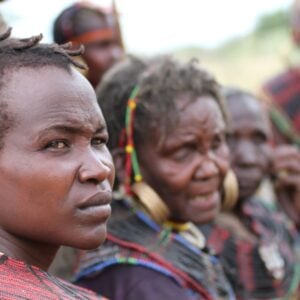The World Bank Group, the Government of Japan, and the World Health Organization (WHO) have launched the Health Works Leaders Coalition, a global alliance uniting health and finance ministers, business leaders, philanthropic organizations, global health agency heads, and civil society representatives. The coalition aims to promote investments in health systems as a driver of economic growth, job creation, and resilience. It is part of the broader Health Works initiative, which seeks to expand quality, affordable health services to 1.5 billion people by 2030.
The coalition’s focus is on mobilizing both domestic and international investments, catalyzing reforms, and aligning partners behind scalable, government-led priorities. It is not a funding mechanism but a platform to coordinate high-impact action on health reform globally. During its inaugural meeting at the World Bank Group Annual Meetings, it was announced that an initial group of 21 countries will develop National Health Compacts—government-led agreements outlining bold reforms, investment priorities, and shared accountability to unlock resources for expanding access to healthcare.
Reform priorities across these compacts include initiatives such as free health checkups and expanded health insurance in Indonesia, and a pharmaceutical strategy in Mexico designed to create 60,000 jobs through private sector partnerships. The first compacts, representing diverse income levels and regions, are scheduled for formal launch at the UHC High-Level Forum in Tokyo in December 2025.
In parallel, Japan announced the inaugural programme of the UHC Knowledge Hub, which will support policy-makers from developing countries through capacity-building and knowledge sharing. The platform aims to strengthen health financing expertise within health and finance ministries, leveraging Japan’s experience to enable tangible reforms in national health systems.
WHO Director-General Dr. Tedros Adhanom Ghebreyesus emphasized the importance of countries shifting from reliance on overseas aid toward greater ownership of their health systems, mobilizing domestic resources, and protecting vulnerable populations from financial hardship. World Bank President Ajay Banga highlighted that delivering quality, affordable health services to 1.5 billion people requires coordinated efforts across governments, institutions, and philanthropic partners, with benefits extending beyond health to economic growth and job creation.
The Health Works Leaders Coalition includes members from countries such as Egypt, Ethiopia, Indonesia, Kenya, Nigeria, the Philippines, Sierra Leone, and Saint Lucia, alongside global health partners like GAVI, The Global Fund, Seed Global Health, the Susan Thompson Buffett Foundation, Wellcome Trust, and WACI Health. The initial group of 21 countries participating in National Health Compacts includes Bangladesh, Cambodia, Cote d’Ivoire, Egypt, Ethiopia, Fiji, India, Indonesia, Kenya, Mexico, Morocco, Nigeria, the Philippines, Saint Lucia, Sierra Leone, Syria, Tajikistan, Tanzania, Uganda, Uzbekistan, and Zambia.
The first UHC Knowledge Hub countries are Cambodia, Egypt, Ethiopia, Ghana, Indonesia, Kenya, Nigeria, and the Philippines, marking a significant step in building institutional capacity, knowledge sharing, and alignment to achieve universal health coverage globally.







